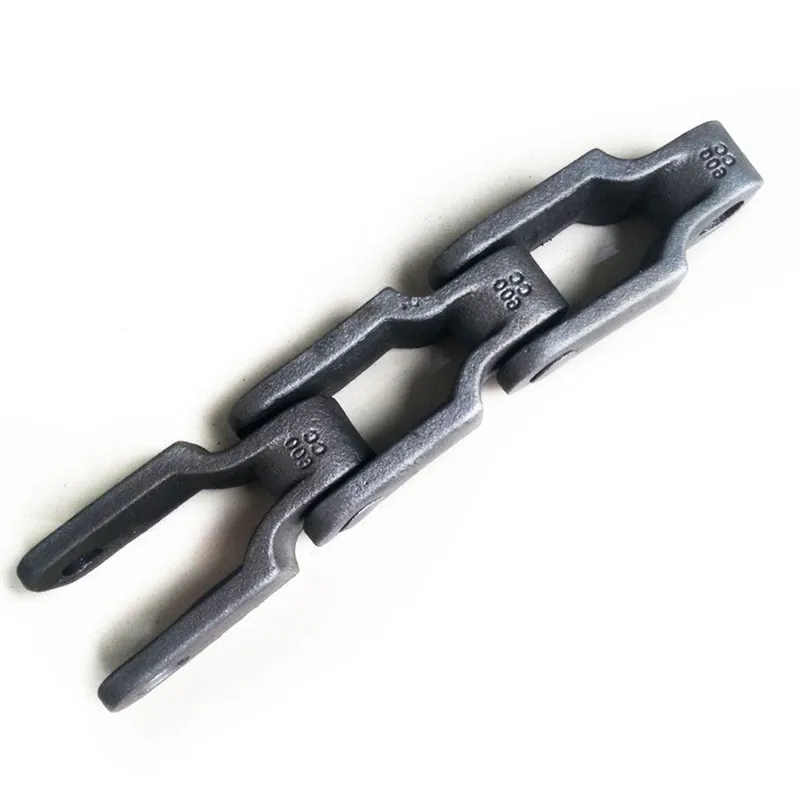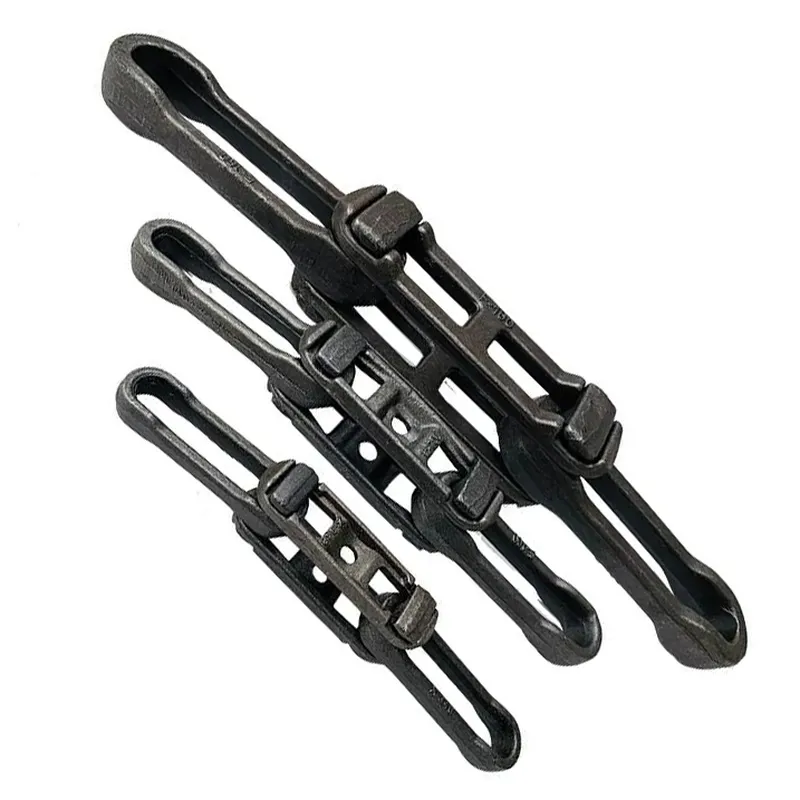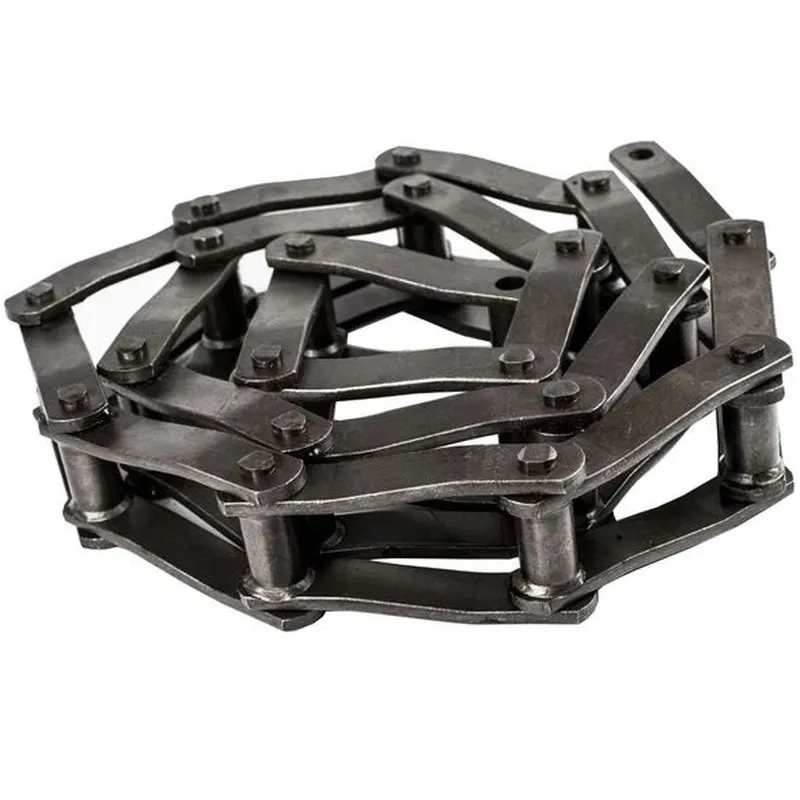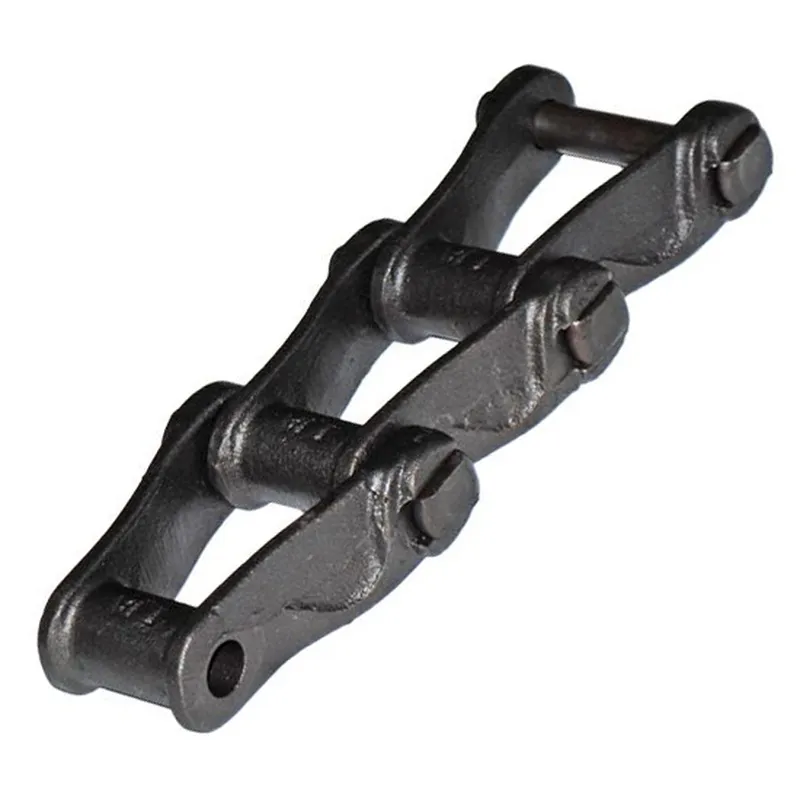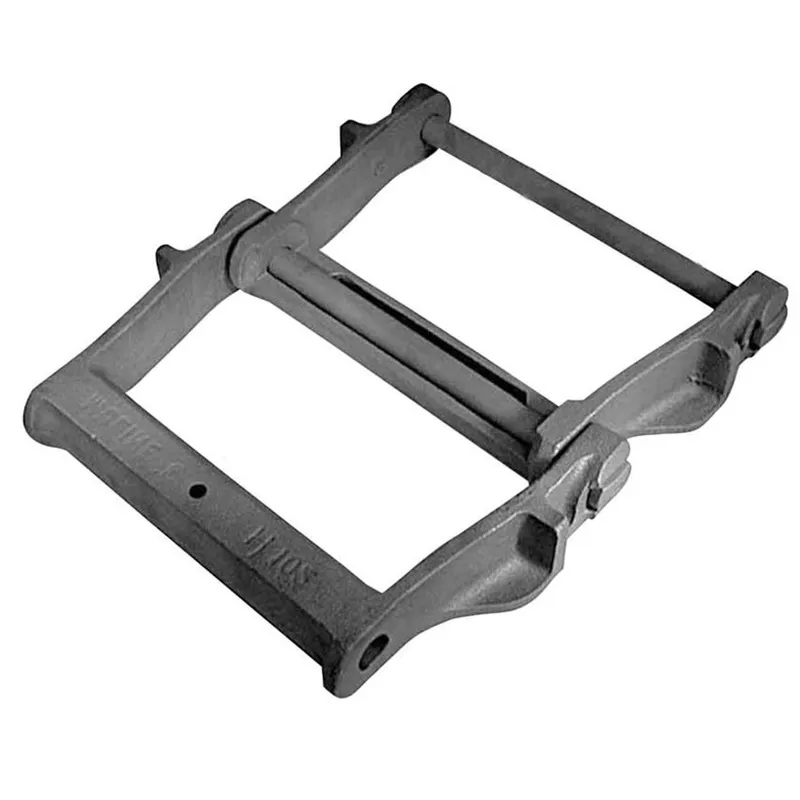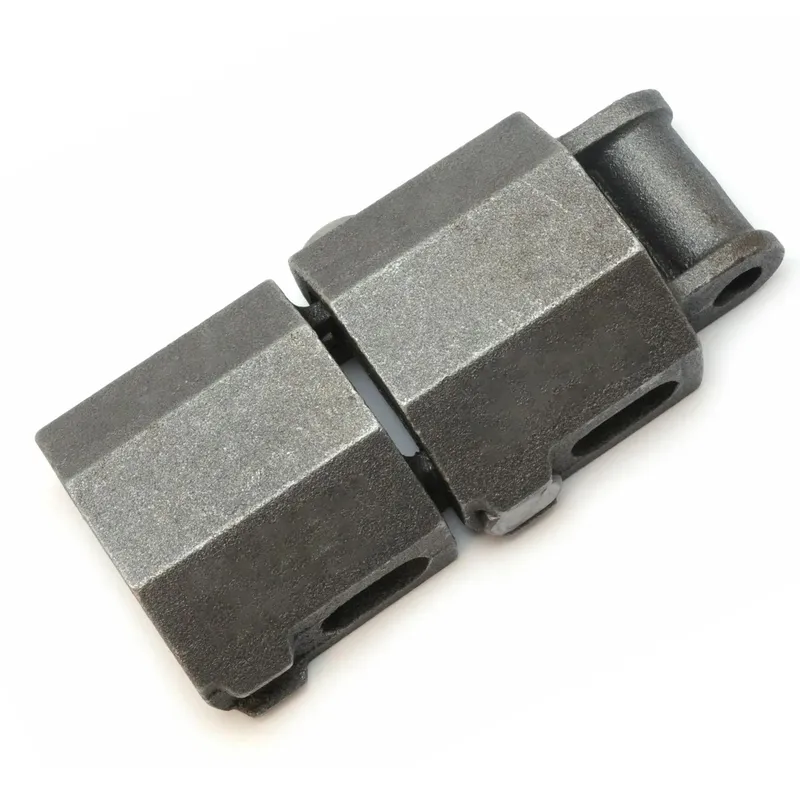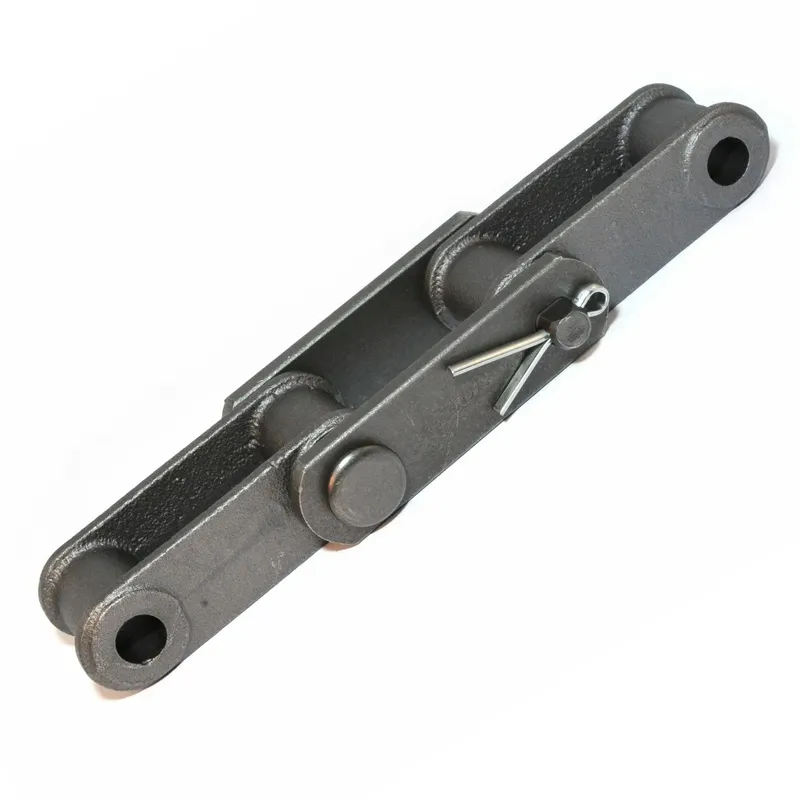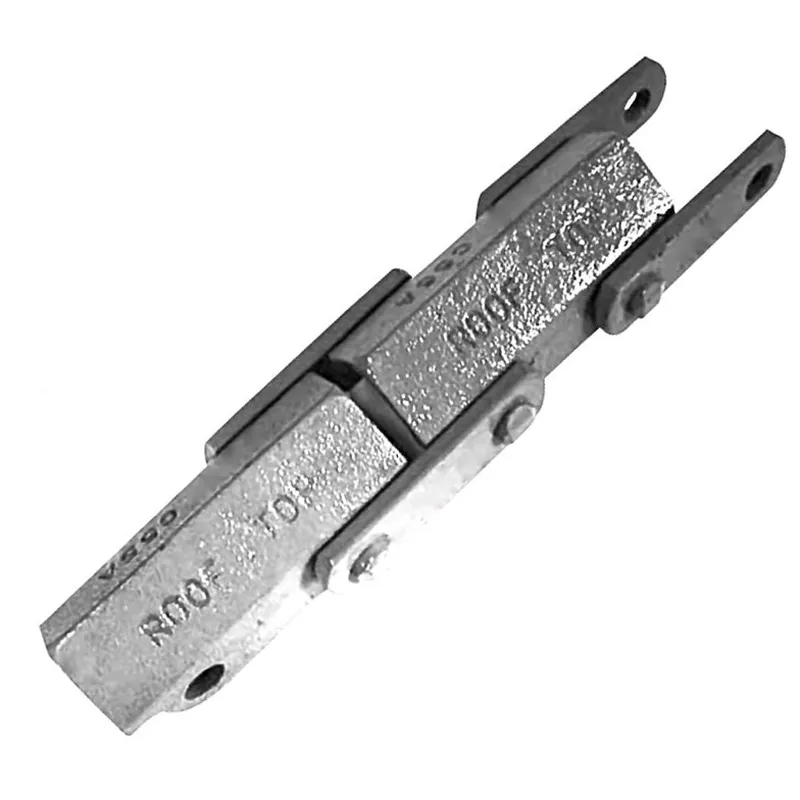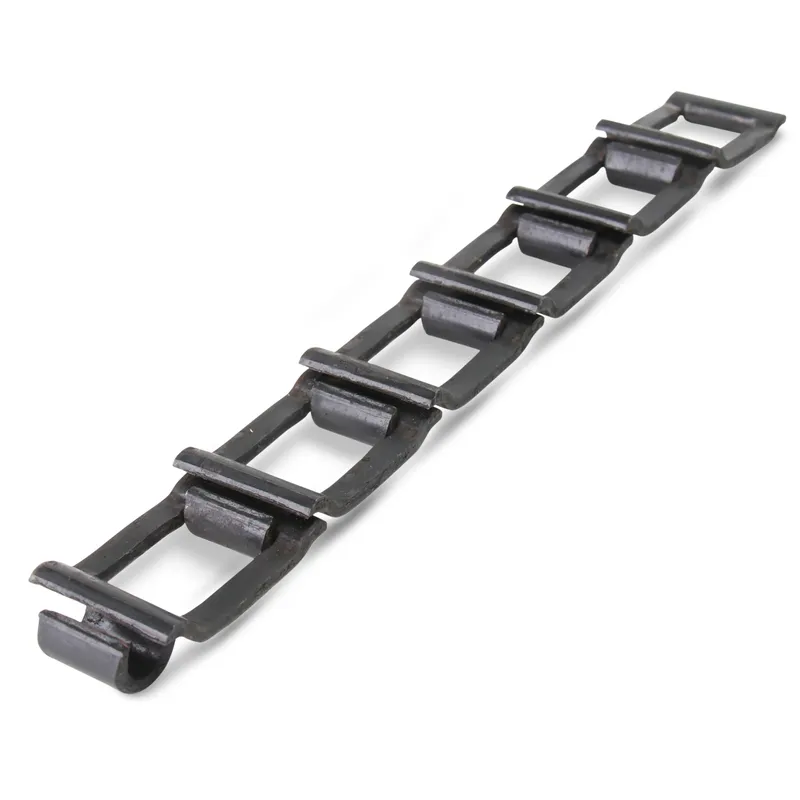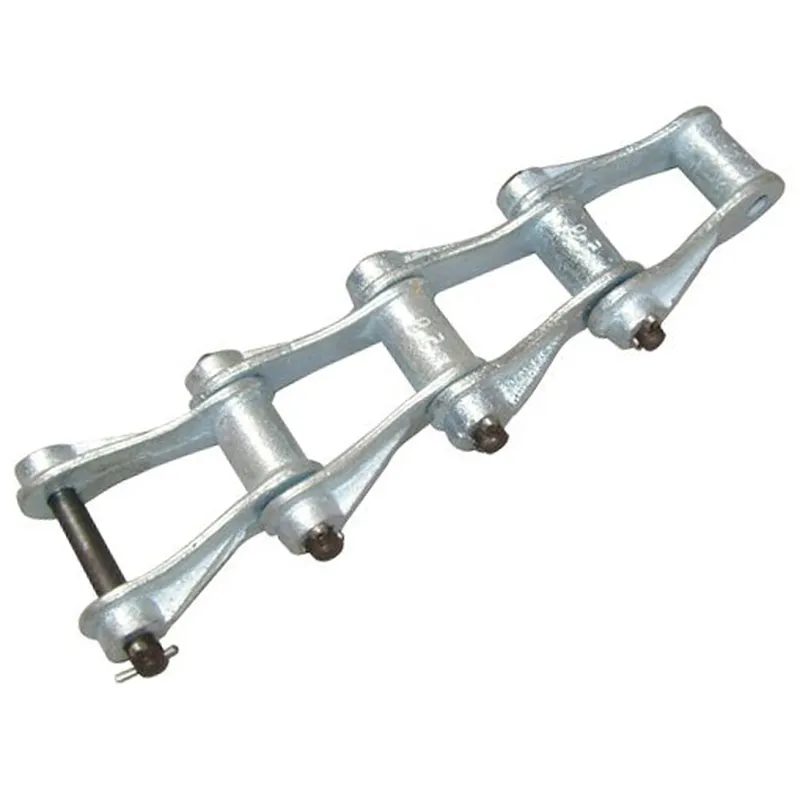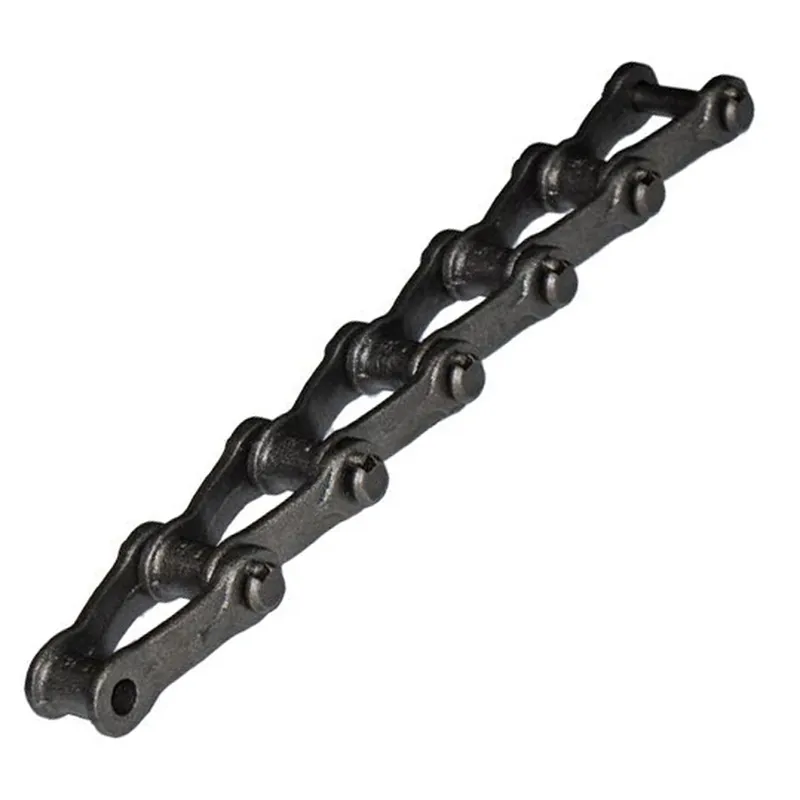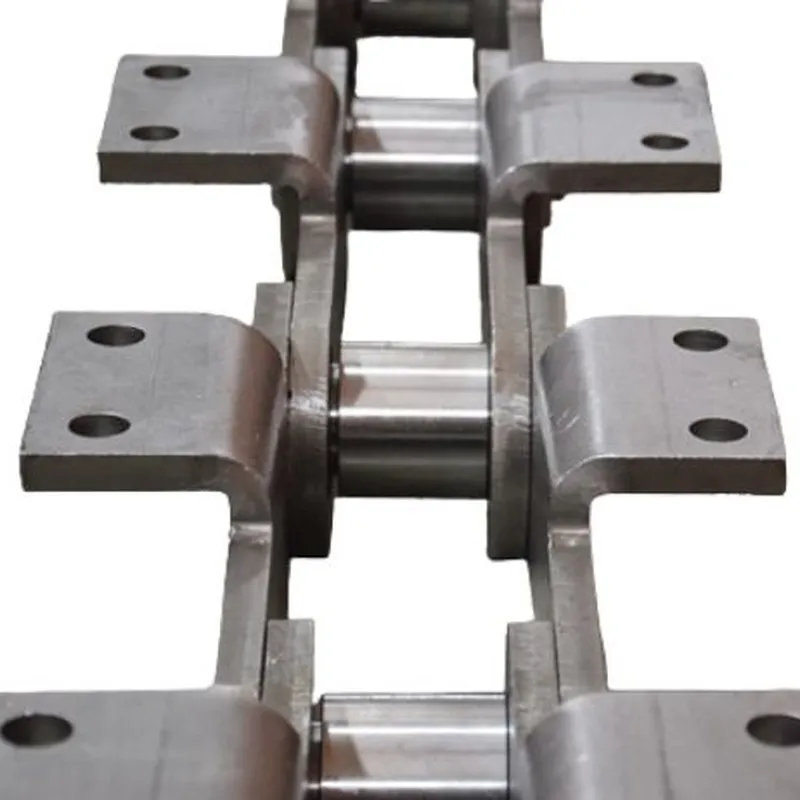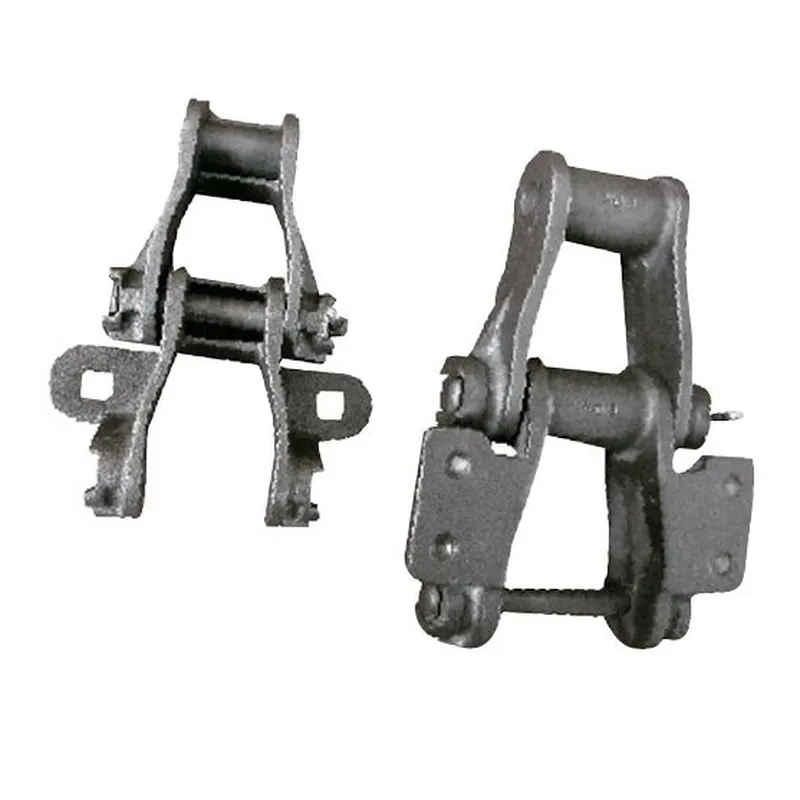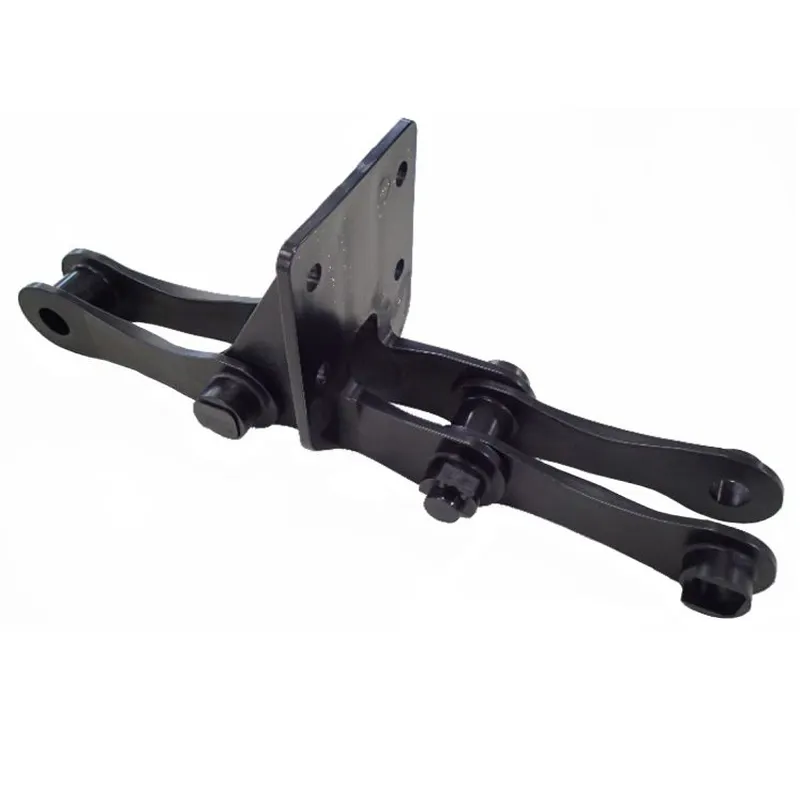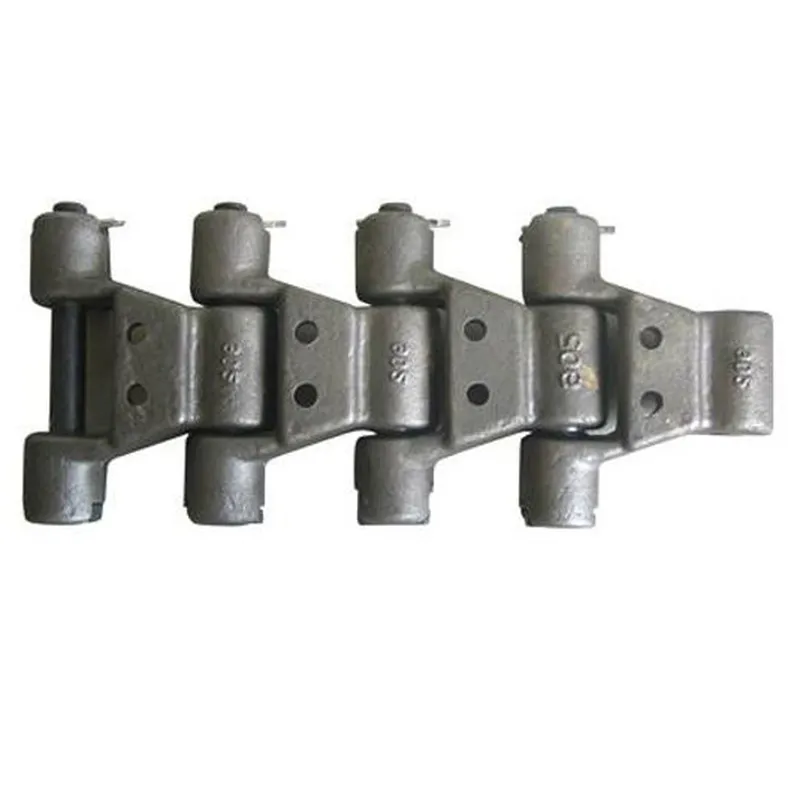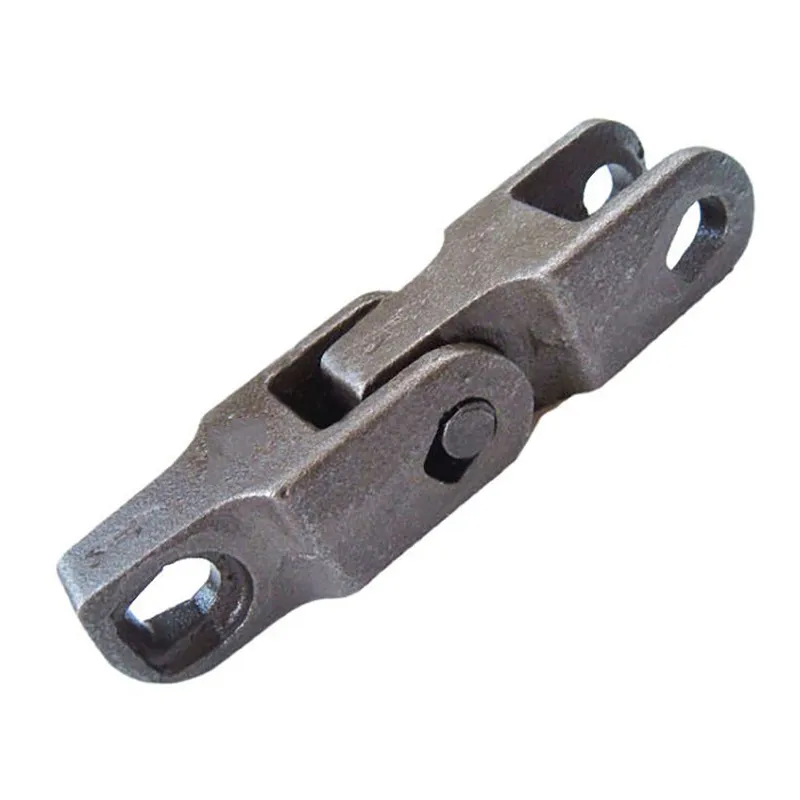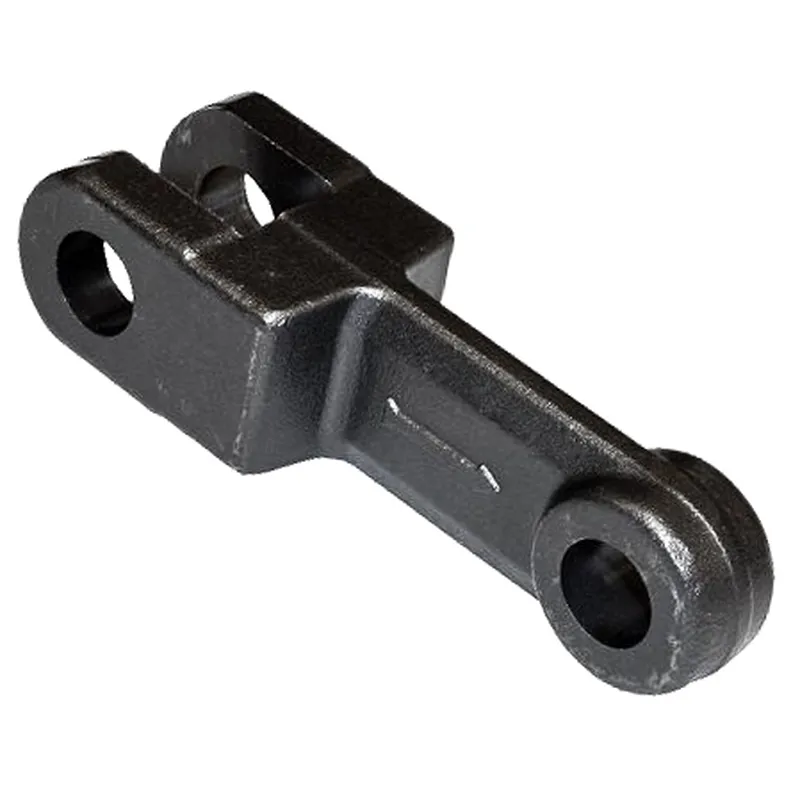Malleable Cast Iron Chains
Malleable cast iron chains are durable, versatile chains made from malleable cast iron, a heat-treated iron-carbon alloy with enhanced ductility and strength. Produced by annealing white cast iron, the process transforms brittle carbide structures into graphite nodules, improving flexibility and toughness. These chains offer high tensile strength (up to 580 MPa), wear resistance, and corrosion resistance, making them ideal for heavy-duty industrial applications like mining, agriculture, and conveyors. Their machinability allows customized designs, balancing performance and cost-effectiveness while withstanding harsh environments and heavy loads.
We offer a diverse selection of malleable cast iron chains, including CC Class conveyor chains, drop forged conveyor chains, H Class mill chains, H Class refuse drag chains, H transfer rooftop chains, welded steel mill chains, combination chains, combination transfer chains, DIN654 Class pintle chains, 400 Class pintle chains, 500 Class bucket elevator chains, 600 Class ley bushed chains, 700 Class wastewater chains, 900 Class sugar mill chains, casting detachable chains, boiler moving grate chains, MC33 double flex chains, etc.
Malleable Cast Iron Chain Types
Malleable Cast Iron Chain Applications
Malleable cast iron chains, known for their strength, flexibility, and wear resistance, find applications across various industries. Here are some common applications:
1. Conveyor Systems in Manufacturing: Malleable cast iron chains are widely used in conveyor systems for moving heavy materials in manufacturing plants. Their durability ensures reliable operation under high loads, resisting wear from continuous use and harsh industrial environments.
2. Agricultural Machinery: In agricultural equipment like harvesters and balers, these chains transmit power and handle heavy loads. Their malleability allows flexibility in complex machinery, while their strength withstands the rigors of outdoor, dusty conditions.
3. Mining Operations: Malleable cast iron chains are employed in mining for hoisting and dragging heavy ore. Their ability to endure extreme stress, abrasion, and corrosive environments makes them ideal for underground and surface mining equipment.
4. Automotive Industry: These chains are used in automotive assembly lines for conveying car parts. Their high tensile strength and resistance to deformation ensure smooth operation in high-speed, repetitive tasks under significant mechanical stress.
5. Material Handling Equipment: In forklifts and cranes, malleable cast iron chains support heavy lifting. Their flexibility and fatigue resistance allow them to handle dynamic loads, ensuring safety and efficiency in warehouses and construction sites.
6. Sugar Industry: Malleable cast iron chains are critical in sugar mills for cane handling and processing. They resist corrosion from sugary, moist environments and provide reliable performance in high-torque, continuous-operation machinery.
7. Cement Industry: In cement production, these chains are used in conveyors and elevators to transport raw materials. Their robustness allows them to withstand abrasive dust and high temperatures, ensuring uninterrupted operation.
8. Wastewater Treatment: Malleable cast iron chains are utilized in sludge collectors and scraper systems in wastewater treatment plants. Their corrosion resistance and strength ensure longevity despite exposure to moisture and chemicals.
9. Lumber Industry: Malleable cast iron chains are used in sawmills for log handling and timber transport. Their ability to resist wear from wood debris and maintain strength under heavy loads enhances operational efficiency.
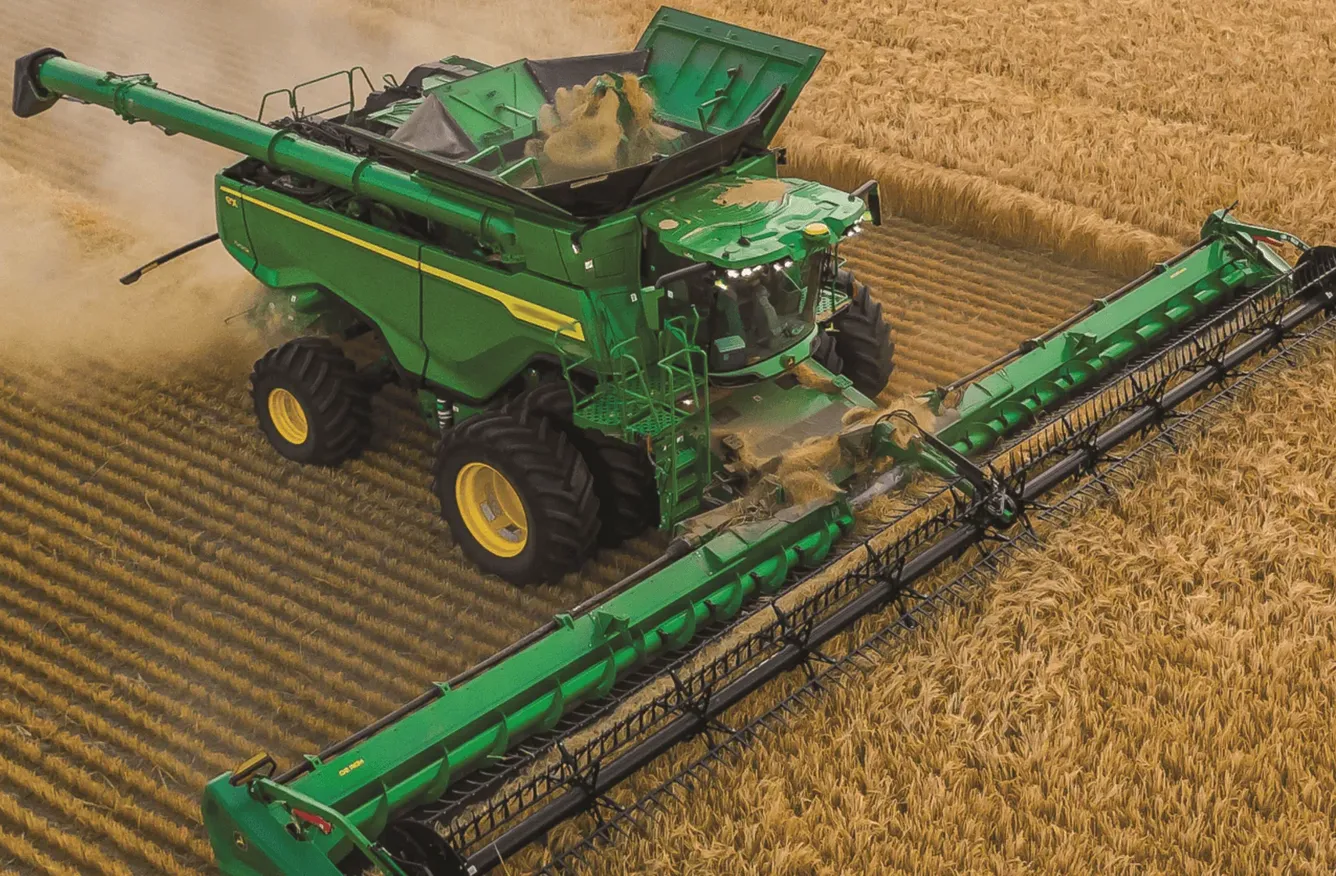
Agricultural Machinery

Sugar Industry
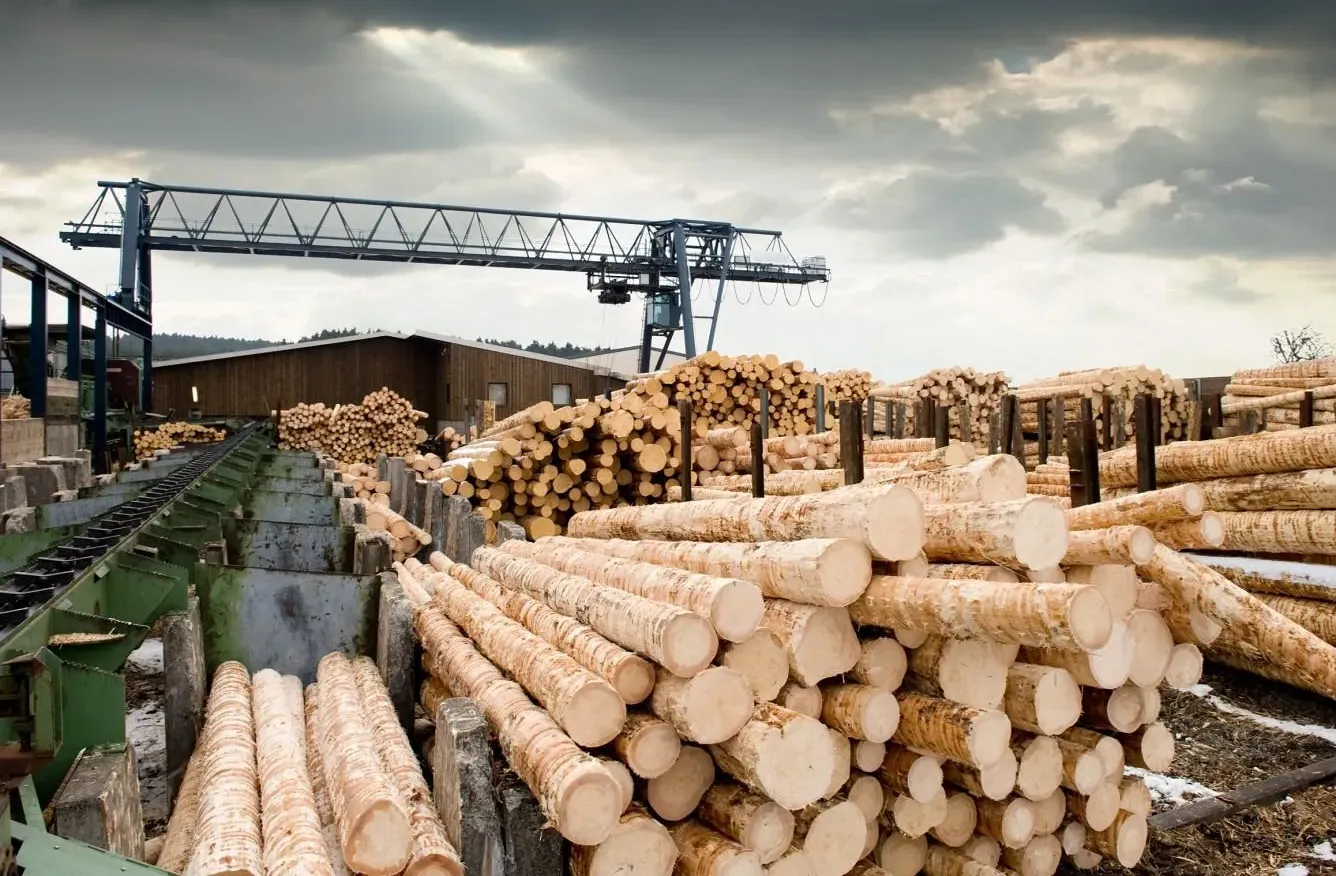
Lumber Industry
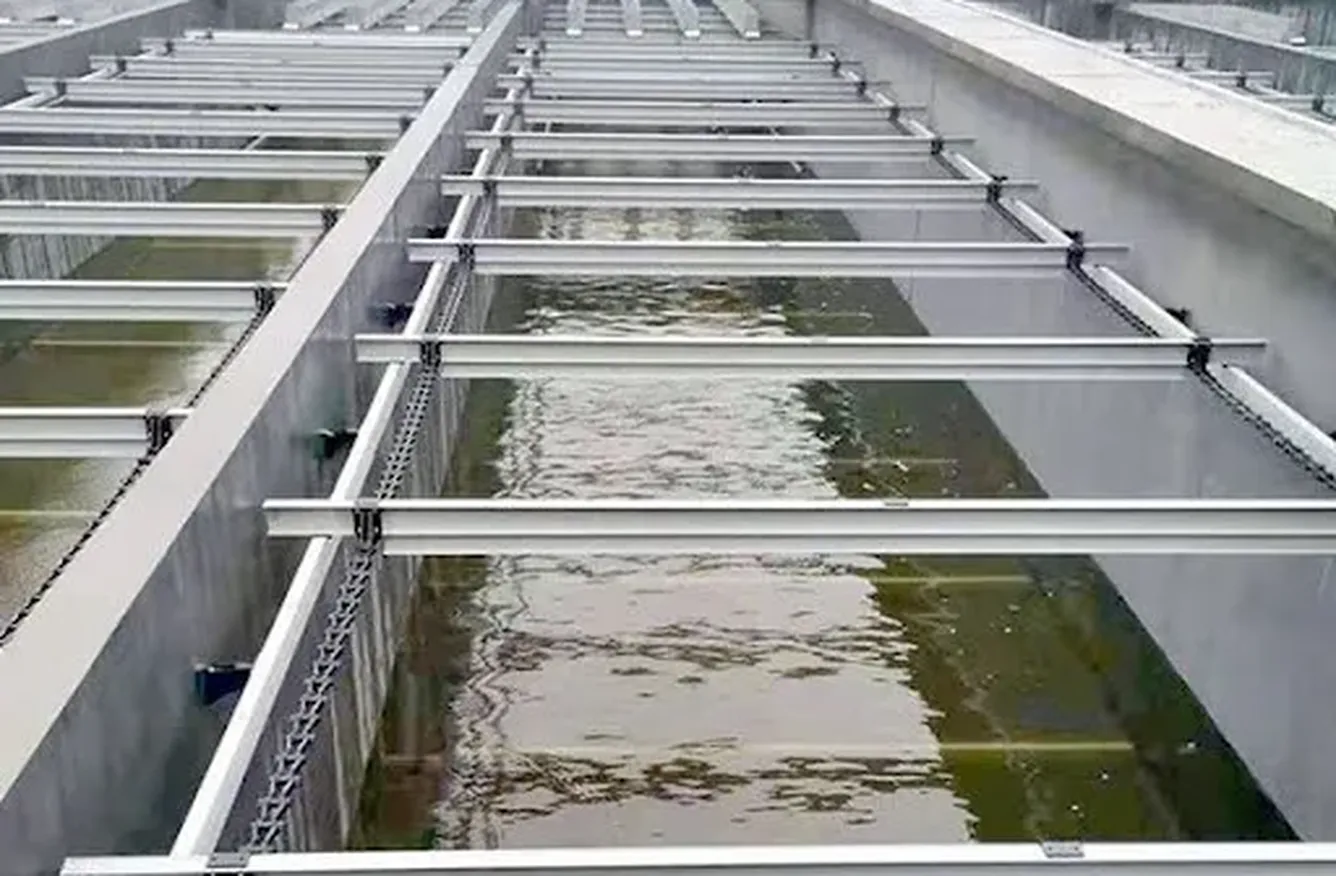
Wastewater Treatment
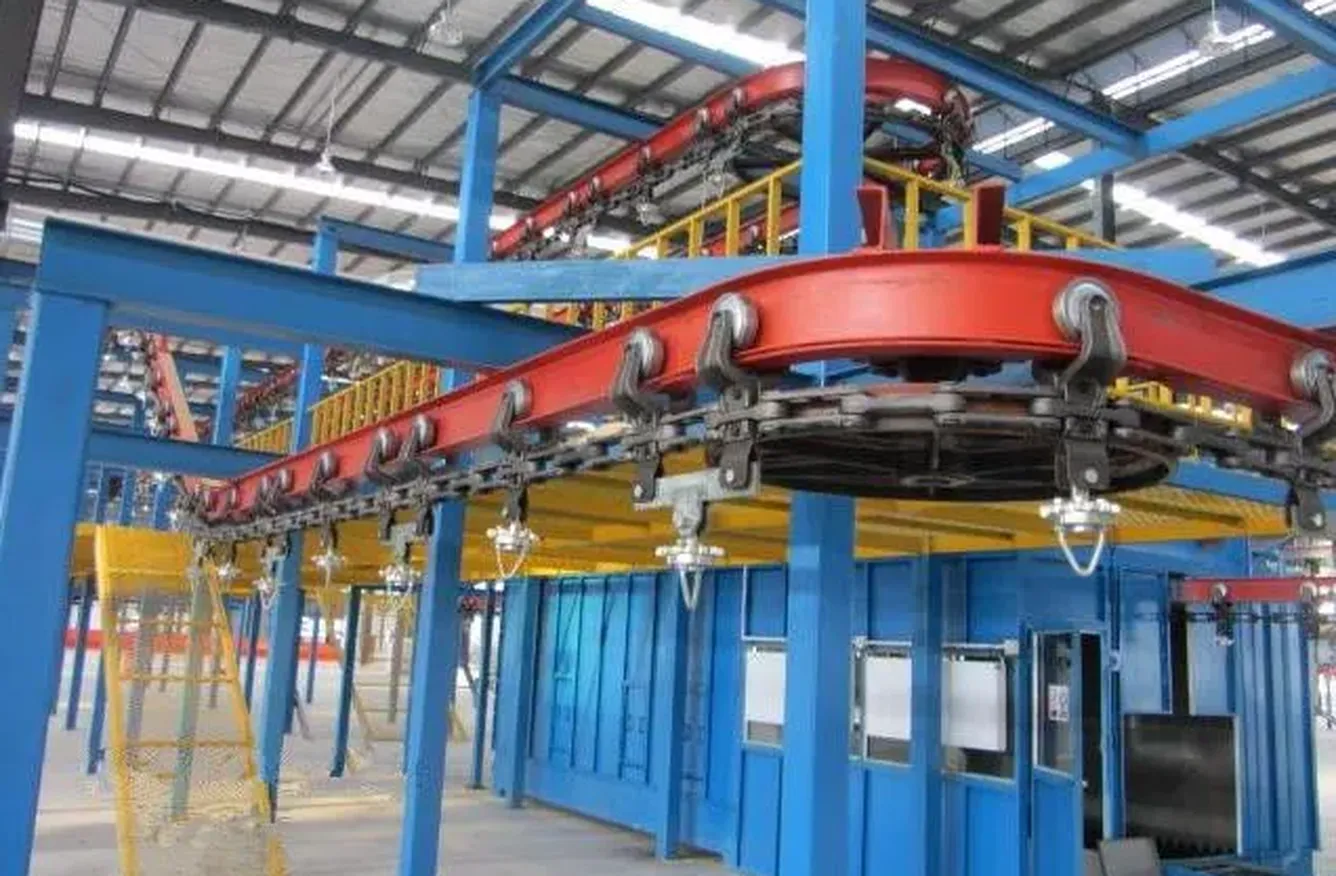
Automotive Industry
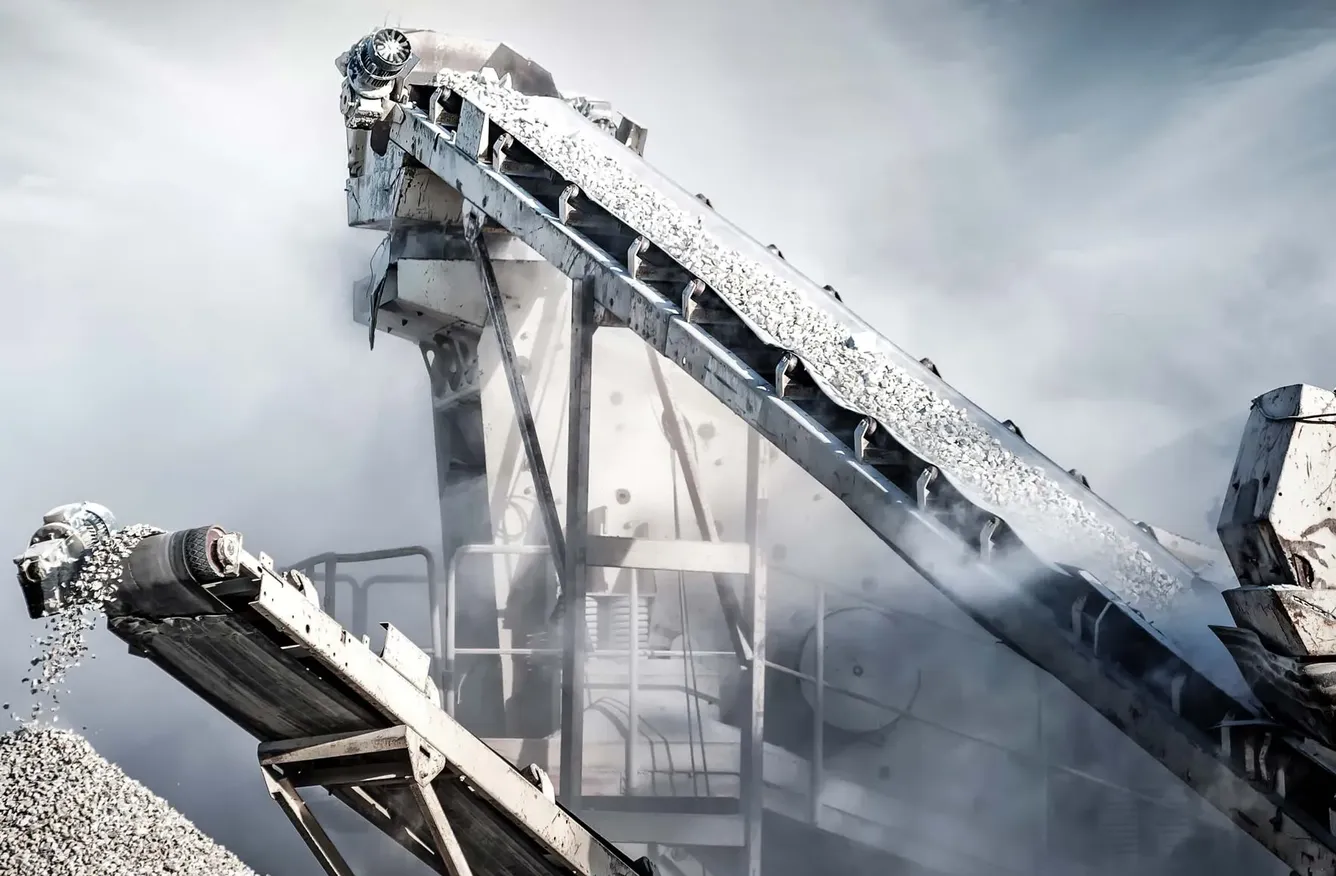
Cement Industry
Benefits of Malleable Cast Iron Chains
- High Strength and Load Capacity: Malleable cast iron chains possess impressive tensile and yield strengths, enabling them to handle significant loads without breaking. This makes them ideal for heavy-duty applications in industries like mining, agriculture, and manufacturing, where robust chains are essential for reliable performance under stress.
- Ductility and Shock Resistance: Unlike regular cast iron, malleable cast iron offers ductility, allowing slight deformation without fracturing. This property enhances resistance to shock and vibration, protecting equipment and ensuring safer operation in dynamic environments like conveyor systems or marine applications.
- Wear Resistance and Longevity: The naturally hard surface of malleable cast iron minimizes abrasion, extending chain lifespan. This wear resistance reduces the need for frequent replacements, making them suitable for abrasive environments, such as material handling in manufacturing or mining operations.
- Corrosion Resistance: Malleable cast iron chains have inherent corrosion resistance, making them suitable for harsh environments with moisture or chemicals. This property extends service life in applications like marine mooring or agricultural equipment exposed to outdoor conditions.
- Versatility Across Applications: These chains are adaptable to various industries, including mining, agriculture, and power transmission, due to their combination of strength, flexibility, and corrosion resistance. Their ability to conform to different equipment designs enhances their utility in diverse industrial settings.
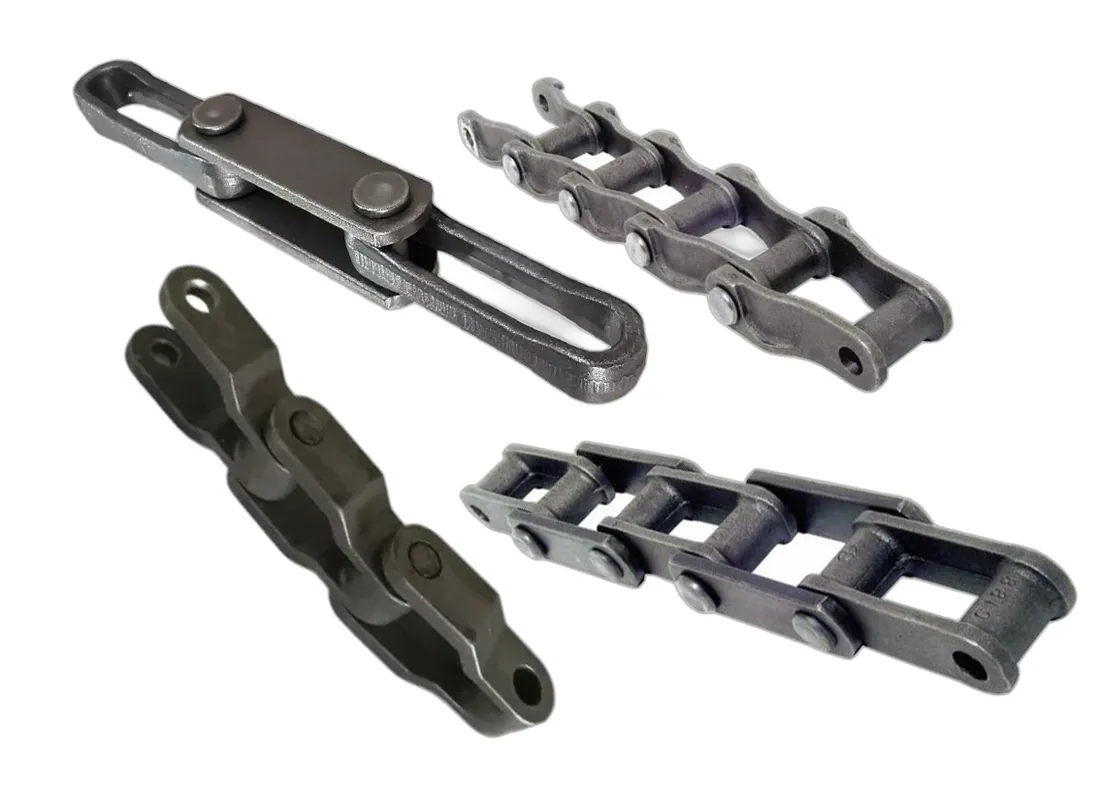
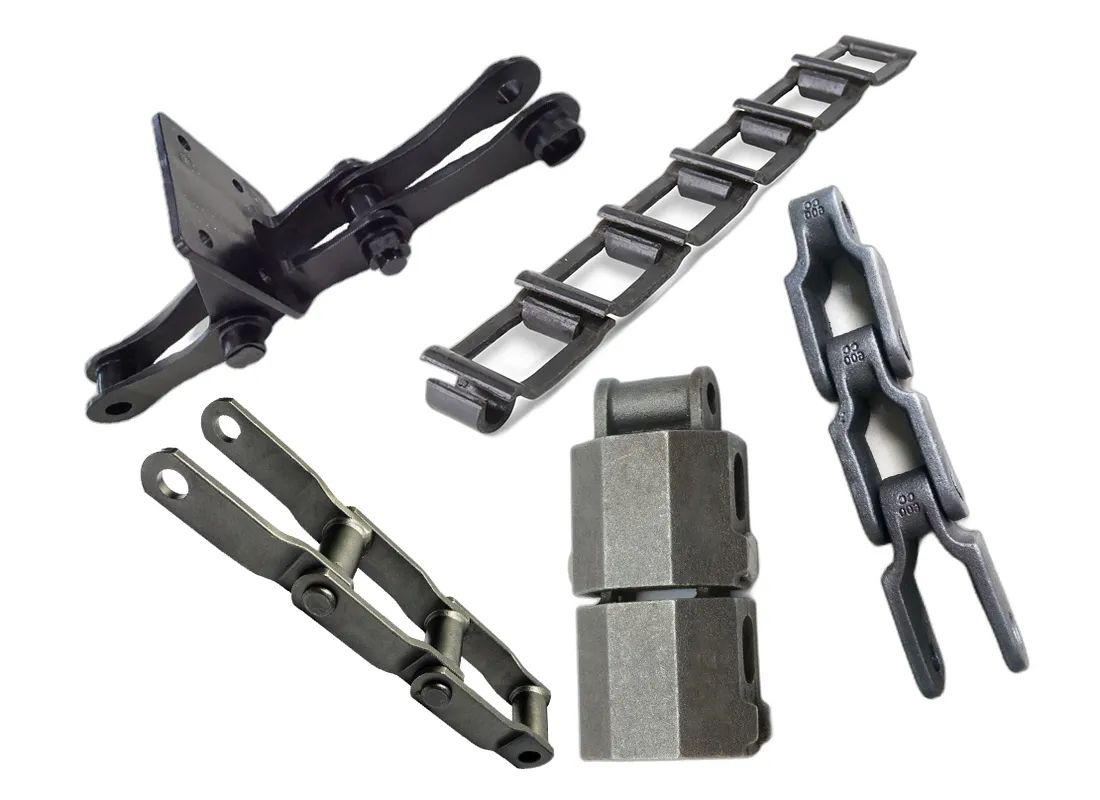
Malleable Iron Chain FAQ
How Is Malleable Cast Iron Produced for Chains?
What Are the Key Properties of Malleable Cast Iron Chains?
How Durable Are Malleable Cast Iron Chains?
What Are the Advantages of Malleable Cast Iron Chains over Steel Chains?
How Do Malleable Cast Iron Chains Resist Corrosion?
Can Malleable Cast Iron Chains Be Used in High-Temperature Environments?
What Are the Limitations of Malleable Cast Iron Chains?
High Quality Malleable Iron Chain for Sale
-

CC Class Crate Conveyor Chains CC175 CC400 CC600 CC625 CC600D CC1300 CC1300D F801
-
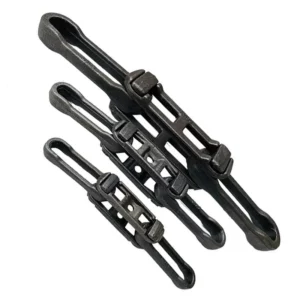
Drop Forged Rivetless Chains X348 X458 468 X658 X678 698 998 S348 S458 S468 S698 S998
-
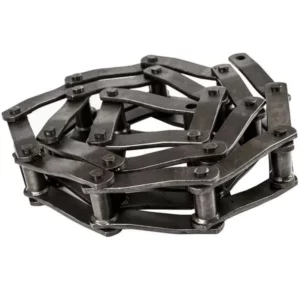
Welded Steel Mill Chains WH188 WH78 WH82 WH124 WH111 WH106 WH110 WH132 WH150
-
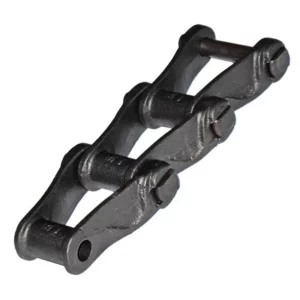
H Class Mill Chains H60 H74 H78 H79 H82 H87 H124
-
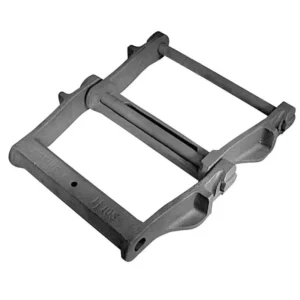
H Class Refuse Drag Chains H102 H104 H110 H112 H116 H120 H480
-
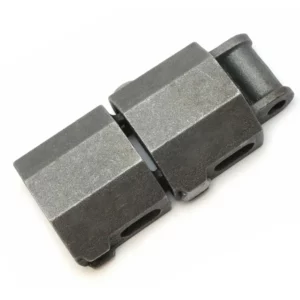
H Transfer Rooftop Chains H78A H78B H130 H131 H138 Rooftop Transfer Chain
-
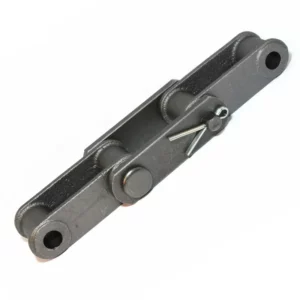
Combination Chains C55 C55L C60 C77 C188 C131 C102B C111 C110 C133 C132
-
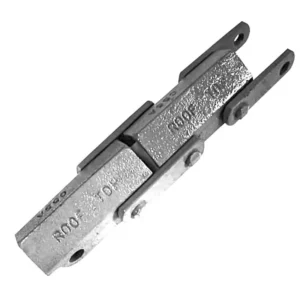
Combination Transfer Chains C55A C55B C55D Rooftop Chains
-
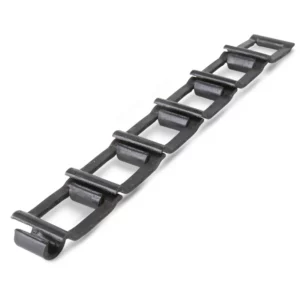
Cast Detachable Chains 25 32 34 42 45 50 51 52 55 57 62 67 75 77 78 88 103 114 124
-
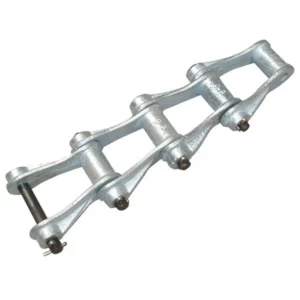
DIN654 Class Pintle Chains 40 41 42 59 63 65 85 87 100 100A 100B 100D 135 135A 136
-
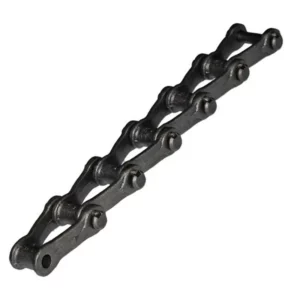
Cast 400 Class Pintle Chains 442 445 452 455 462 477 488 4103 4124
-
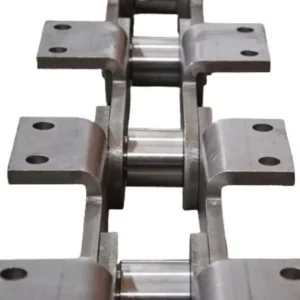
500 Class Bucket Elevator Chains 567 574 578 503 504 500 330
-
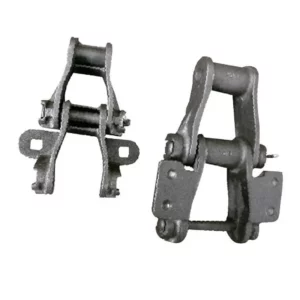
600 Class Ley Bushed Chains 603 604 600 704 Agricultural Bush Chains
-
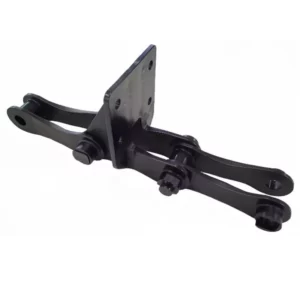
700 Class Wastewater Chains 720 720S MS720S 730 MS730 788 TAW710 TAW720 TAW720S TAW730
-
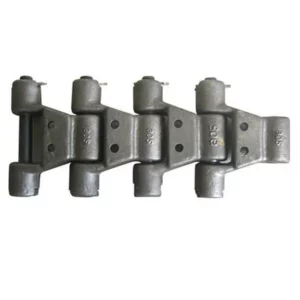
900 Class Sugar Mill Chains 901 902 907 5174 Pintle Chains
-
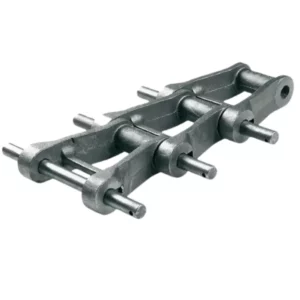
Boiler Moving Grate Chains D472 JK5063 JK5109
-
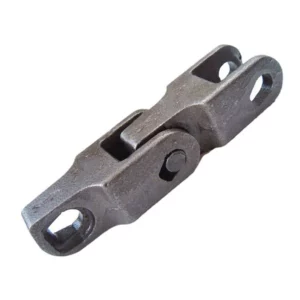
MC33 Double Flex Chain for Dairy Processing or Food and Beverage Industry
-
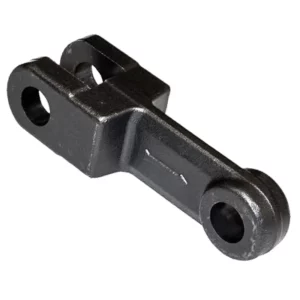
Drop Forged Conveyor Chains 102HVY 142NA 142HA 150NA 260STD Drop Forged Chains

